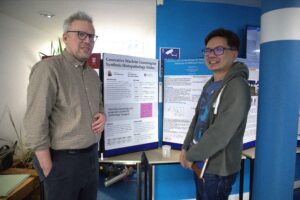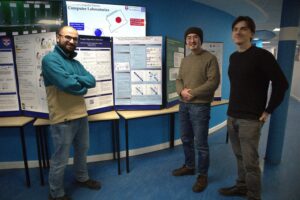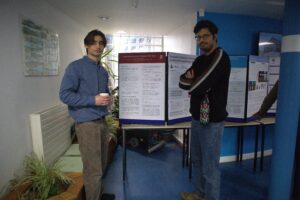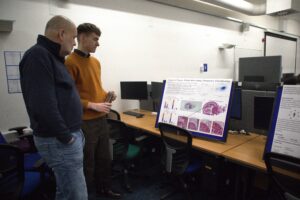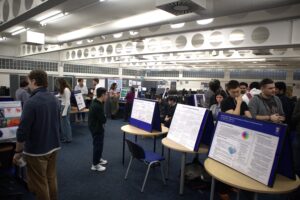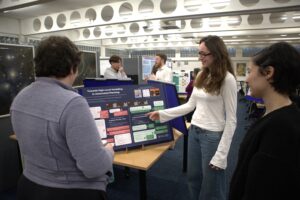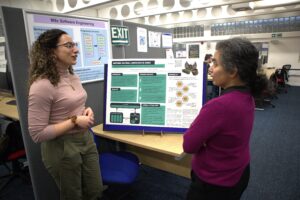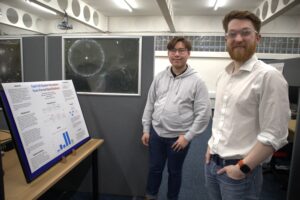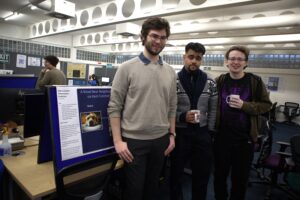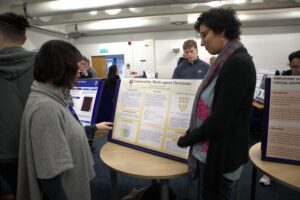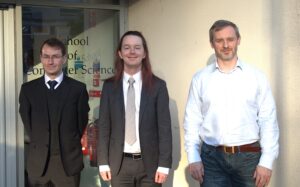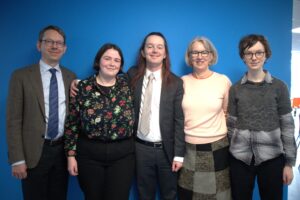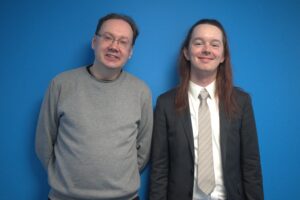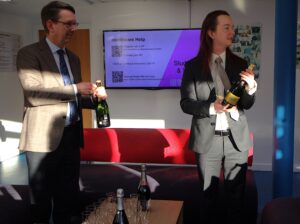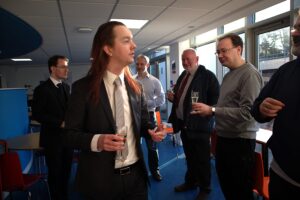Lead supervisor: Professor Ian Miguel
Application deadline: 1 March 2025
Project description:
Planning is a fundamental discipline of Artificial Intelligence, which asks us to find a sequence of actions transforming an initial state into a goal state. This project focuses on multi-agent path planning (also known as multi-agent path finding), where a set of mobile agents is navigated from starting positions to target positions. MAPP is the focus of intense research effort because it has many challenging real-world applications in robotics, navigation, the video game industry, and automatic warehousing. Automatic warehousing is one of the most challenging domains and the focus of the greatest investment. For example, Amazon have invested heavily in robot-equipped warehouses. It is performed on a huge scale (thousands of robots in warehouses containing many thousands of shelves and products) with the need to find an efficient solution quickly so that the robots are always safely moving towards their goals. The typical layout of a warehouse increases difficulty further: shelves are packed tightly into the space, reducing the capacity for movement of the robots.
MAPP is inherently very difficult — there is no known “cheap” method to produce high quality solutions quickly at the scale required. Current approaches fall into two categories, both relying on AI techniques that search through the vast space of possible solutions. Those that guarantee optimality struggle to scale, while approaches that scale do so at the cost of reduced solution quality. This proposal is to advance the state of the art in optimal MAPP significantly through a novel combination of path planning and constraint programming. Constraint programming is a powerful automated reasoning technique that allows us to model a complex decision-making problem such as MAPP by describing the set of choices that must be made (e.g. which path a robot should take) and the set of constraints that specify allowed combinations of choices (e.g. robots cannot collide). This model is presented to a constraint solver, which searches for solutions automatically, using powerful deduction mechanisms to reduce search considerably.
The project includes the following objectives:
A New Modelling Perspective: The model input to a constraint solver is crucial to the efficiency with which solutions can be found. Our proposed innovation is in how MAPP is modelled. We will exploit the many equivalencies in these problems, for example equivalent routes between locations, and equivalent resources in terms of the robots. While these remain in the model they must potentially all be explored, wasting enormous effort. Instead of modelling the warehouse layout at a fine level of detail, the current default leading to the consideration of a vast number of equivalent paths, we will abstract the fine-grained grid representation into larger regions, for example representing an entire corridor between two shelves.
Ensuring Validity: The research challenge in adopting this more abstract modelling perspective is to ensure that plans found with this reduced representation are valid in the real warehouse by, for example, constraining these regions so that their capacities are respected and the flow of traffic within them is such that collisions and deadlocks cannot occur.
Evaluation and refinement: We will evaluate our new model on benchmark problems drawn from the competitions where state of the art MAPP solvers compete. This will allow us to gauge progress and refine and improve our new approach.
The result of this research will be to improve the scalability of optimal solvers, producing better quality solutions, increasing the throughput of a warehouse, and reducing operational costs.
Eligibility Criteria
We are looking for highly motivated research students willing to be part of a diverse and supportive research community. Applicants must hold a good Bachelor’s or Master’s degree in Computer Science, or a related area appropriate for their proposed topic of study.
International applications are welcome. We especially encourage female applicants and underrepresented minorities to apply. The School of Computer Science was awarded the Athena SWAN Silver award for its sustained progression in advancing equality and representation, and we welcome applications from those suitably qualified from all genders, all races, ethnicities and nationalities, LGBT+, all or no religion, all social class backgrounds, and all family structures to apply for our postgraduate research programmes.
Value of Award
- Tuition scholarships cover PhD fees irrespective of country of origin.
- Stipends are valued at £19,795 per annum (or the standard UKRI stipend, if it is higher).
To apply:
Interested applicants can contact Professor Ian Miguel with an outline proposal.
Full instructions for the formal application process can be found at How to apply – School of Computer Science – University of St Andrews


